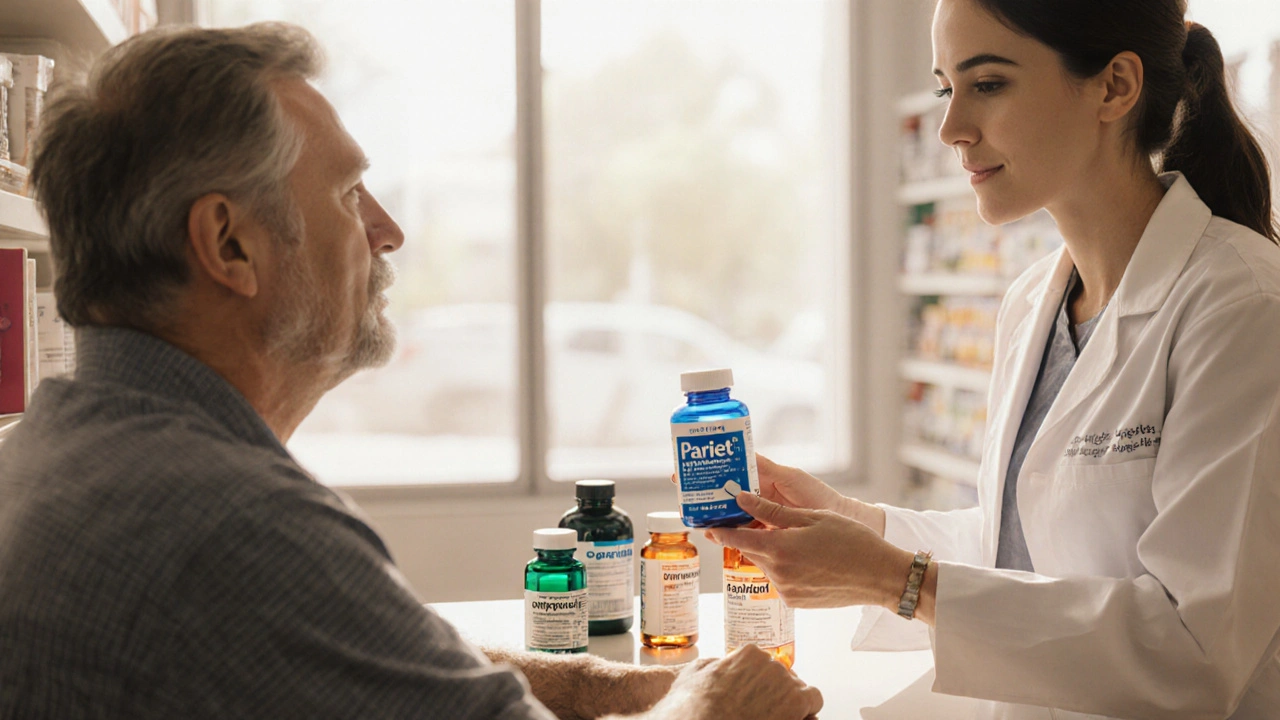Rabeprazole – What It Is, How It Works, and Where to Find It
When you hear Rabeprazole, a prescription drug that lowers stomach acidity by inhibiting the hydrogen‑potassium ATPase pump. Also known as Rabe, it belongs to the class of proton pump inhibitors, medications that block the final step of acid production in the stomach. Doctors prescribe it mainly for GERD, gastro‑esophageal reflux disease, a condition where stomach acid regularly backs up into the esophagus causing heartburn and tissue damage. By reducing acid, Rabeprazole lets the esophageal lining heal and eases the discomfort that many people live with daily. The drug works fast, usually showing relief within a few days, and it’s available in tablets and granules that can be taken before meals. Because it targets the pump directly, it’s more potent than older agents like omeprazole, which makes it a go‑to choice for moderate to severe symptoms.
If you’re considering Rabeprazole, a few practical points matter. First, dosage varies: adults often start with 20 mg once daily, but doctors may adjust based on severity and response. Long‑term use can affect calcium and vitamin B12 absorption, so regular check‑ups are wise. Drug interactions are another key area; Rabeprazole can lower the effectiveness of certain antivirals, antiplatelet drugs, and some antibiotics, so always share your full medication list with your prescriber. When it comes to buying, many users turn to an online pharmacy, a regulated service that ships prescription meds to your door after a verified prescription. A reputable site will require a valid prescription, offer price comparisons, and give clear guidance on storage and side‑effects. Avoid sites that promise the drug without a prescription – they often sell counterfeit products that can be dangerous. By following a safe ordering process, you can enjoy the convenience of home delivery while keeping your treatment trustworthy.
Key Considerations Before Starting Rabeprazole
Before you hit the “order” button, ask yourself these questions: Do you have a confirmed diagnosis of GERD or another acid‑related condition? Have you discussed potential drug interactions with your doctor, especially if you take blood thinners or certain heart medications? Are you aware of the need for periodic monitoring of bone density or vitamin levels if you plan long‑term use? Finally, can you verify that the online pharmacy you choose is licensed in the UK and follows strict safety protocols?
Below you’ll find a curated list of articles that dive deeper into each of these topics – from detailed comparisons of acid‑reducing drugs to safe buying guides for generic medications. Whether you’re looking for dosage tips, side‑effect management, or advice on choosing a reputable online pharmacy, the posts ahead give you actionable insights you can apply right away.

